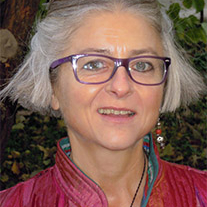New field guide on Farming with Alternative Pollinators (FAP) for farmers
Published on: December 20, 2019, Submitted by Stefanie Christmann on: December 17, 2019
Based on 410 ex-ante assessments with farmers and our daily collaboration with smallholders taking part in the trials, the project team has good insight in farmers’ knowledge on pollinators, pollination, threats to pollinators and low-cost action to better conserve them. So ICARDA, INRA and ONCA developed this field guide for farmers, which is readable also for illiterate farmers.
The cover page of the English brochure (Guide for farmers)
Farmers can see, if the crops they produce are highly pollinator dependent or just to a certain extent or not at all. The value of bees for crop pollination is much higher than the value of honey.
The field guide gives some insight in the diversity of Moroccan pollinators, it shows how some of them look like and for which crops they are effective. The guide shows their habitat requirements, for example if they nest in soil or if they need hollow stems (e.g. from harvested canola) or dead wood and how farmers can provide such nesting materials or safer nesting sites.
The guide shows farmers how they can reduce the negative impacts of chemicals on pollinators, for instance always do weeding before spraying. It reduces the amount of chemicals you need. If you need to use chemicals, always spray only before sunrise and after sunset. The guide includes visual instructions how to spray.
In Morocco, most wild bees nest in the soil. However, chemicals accumulate in soil. Therefore, the female bees are often exposed to toxic soils when they dig the cavities to put their eggs. The guide illustrates this risk. Also, these highly effective pollinators are at risk due to tillage.
The guide shows with many pictures, how farmers can establish FAP fields and that FAP increases the income per surface.
The guide is available in two languages
The professional ONCA-trainers will use the Arabic version of the field guide for their farmer trainings.
Acknowledgement
IKI Project




